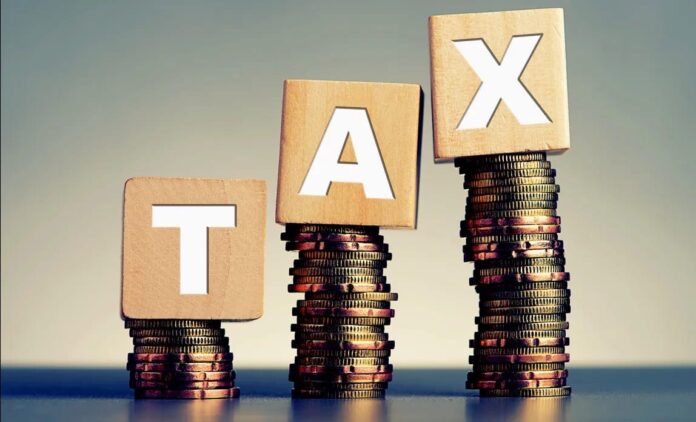On taxes, debt and government spending, by Ibrahim T. Tumsah
Radical Thought
There are a few certainties in life: death, taxes and government inefficient expenditure of state resources. Taxes, the scourge of any civilization. As far as any modern economy is concerned tax collection is the primary source of funding for government spending.
However, what if that government is known for wasting or rather misallocation of funds for its entire existence? It is also important to note that, there is not a single government on earth that is incapable of misallocation of funds. Unfortunately, Nigeria is on the extreme end of that spectrum.
Nigeria has come a long way since President Tinubu was inaugurated in May 2023. His twin policies of floating the exchange rate and removing fuel subsidy has been received with mixed reviews two years into his tenure. With some viewing it as a success from an economic standpoint while others are still skeptical of such sweeping reforms that have made their lives harder. No doubt, the reforms were bold steps taken in the right direction.
Now, the new administration seeks to introduce new tax reforms set to come into effect in January 2026. This is supposed to aid the Federal Government raise funds to balance its budget. The problem with this new tax reform is multiple fold. It is not that the citizens of Nigeria are not willing to pay taxes, Nigerians are more concerned about what their government is capable of when it comes to mishandling finances.
Nigerians have come to harbour a deep mistrust of their government and government officials over decades of disappointment and a lack of transparency in Federal Government profligacy. The country is mired in a history of one too many corruption scandals and cases of animals and supernatural beings making money vanish into thin air without the slightest bit of irony in its 65 year history.
READ ALSO: Ramadan reflections, by Ibrahim T. Tumsah
It would be dishonest on the part of pro-government (officials, supporters and tax collectors alike) to think they can dispel or dismiss appropriate concerns by critics who are skeptical sometimes even cynical of such a reform.
Some people say Nigeria has a spending problem not a revenue problem, while others argue the contrary, sort of like the chicken and egg dilemma. Tax is a serious matter, the Federal Government does not generate nearly enough to fund its spending nor does it spend its revenue wisely. It can be argued that Nigerians already pay more than their fair share of taxes if one closely examines the high percentage of bills paid on a monthly basis.
Of which, Nigerians themselves have to provide for their own basic utilities although the expectation is that it is the government’s responsibility to provide such services. Necessities such as constant power and clean running water are still utilities that individuals and communities have to organize themselves despite paying local authorities to make arrangements.
To claim that the new tax law would somehow improve the lives of ordinary Nigerians and not enrich government elites is a bridge too far for most Nigerians to cross, no matter how many fancy words are strung together to assuage these genuine concerns by slick PR machines.
Not to mention Nigerians are still reeling from the impacts of the twin policies introduced at the beginning of the new administration two years on. Nigerians, yet again and rightly so feel they are being asked to bear the burden for a wasteful, over bloated government while the government continually asks more and more from their pockets with no relief in sight.
READ ALSO: Why do we suffer?, by Ibrahim T. Tumsah
Add to that the FG also plans to take on more debt from the World Bank and IMF to supplement the budget. This is important to note, because if the government takes on debt that it cannot channel into productive means for proper economic growth in critical sectors likely to generate revenue in the future.
It means the administration is kicking the can down the road for future generations as problems they will inherit not of their own volition. The possibility of defaulting on external debt can cause further economic crises i.e currency devaluations and inflation like the early years of hardships of this administration’s tenure (not of their own making).
The FG has a duty to be responsible for the way revenue and debt is spent by putting it to good use in productive sectors that will generate sustainable revenue streams down the line. However, should the government choose to indulge in its excesses, it signals more economic pain on the horizon for an already overburdened population.
Government officials show no signs of temperance to spending lavishly while the average Nigerian with no access to state coffers wonders if they matter or are even at all considered. The tax reforms might seem urgent and much needed by some. Only time will tell if it is another scheme for enriching government elites or a step in the right direction for a new Nigeria. I wouldn’t hold my breath.
Ibrahim T. Tumsah is a trader and financial analyst who writes for Neptune Prime.
Follow the Neptune Prime channel on WhatsApp:
Do you have breaking news, interview request, opinion, suggestion, or want your event covered? Email us at neptuneprime2233@gmail.com





